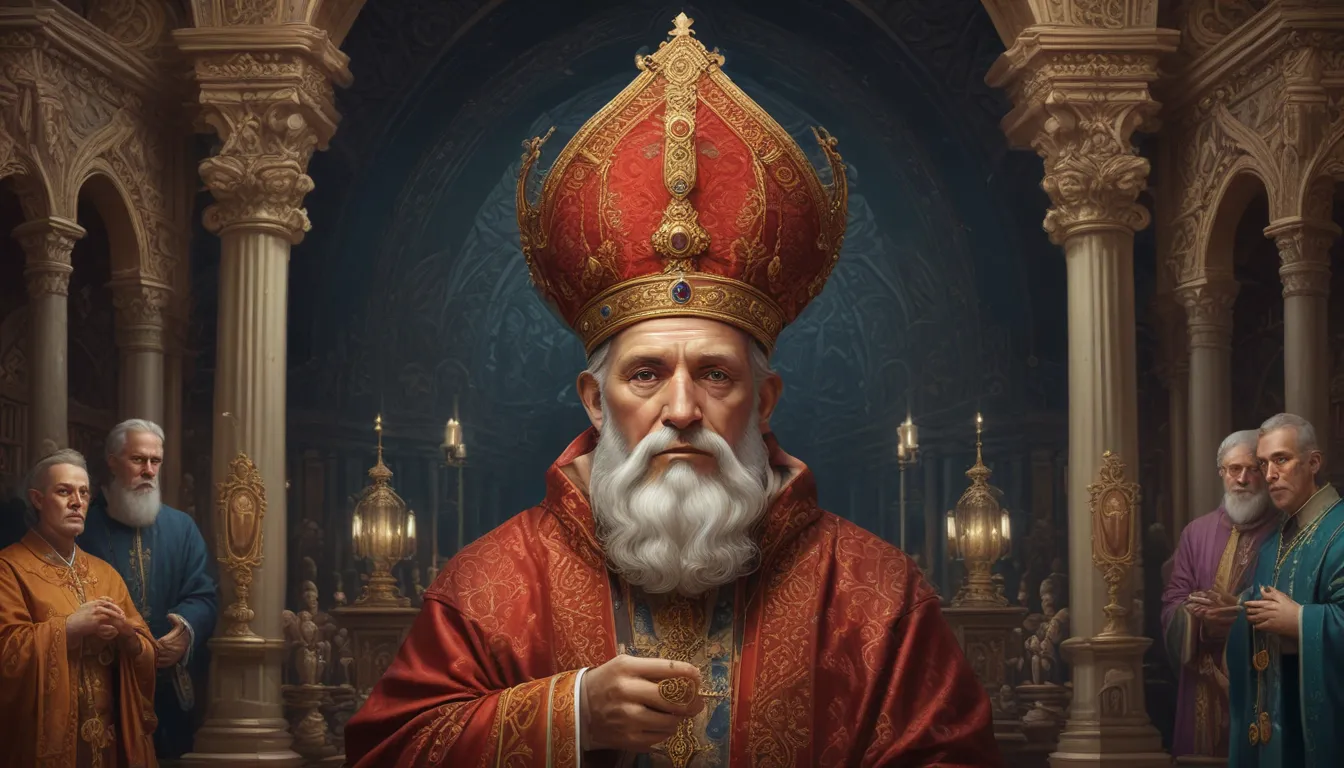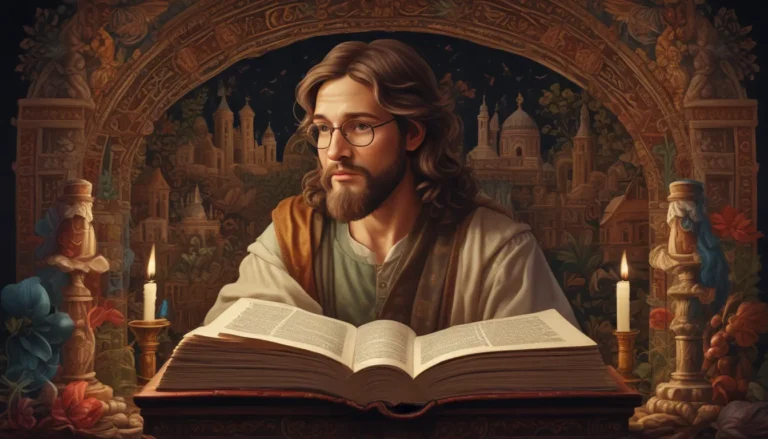The images in our articles may not match the content exactly. They are used to grab your attention, not to show the exact details in the text. The images complement the text but do not replace it.
In the realm of religious leadership, bishops hold a unique and significant position, guiding and inspiring their congregations with wisdom and compassion. Their influence goes beyond the walls of the church, shaping communities and individuals in profound ways. Join us on a journey as we uncover 20 intriguing facts about bishops, shedding light on their historical significance, responsibilities, and diverse roles within various religious contexts. From their distinctive attire to their pivotal role in spiritual rites, bishops are at the heart of religious traditions, embodying leadership and spiritual guidance. Let’s delve into the fascinating world of bishops, exploring lesser-known aspects of their esteemed position and the profound impact they have on the faithful and society at large.
Key Takeaways:
- Bishops are ordained members of the clergy in Christianity, playing a key role in sacraments and upholding canon law. They engage in social advocacy and participate in interfaith dialogues, fostering unity and understanding within the broader religious community. – Bishops hold hierarchical positions within the church, overseeing dioceses and contributing to the commemoration of religious art.
The Origin and Significance of Bishops
Bishops, prominent spiritual leaders in Christianity, are ordained clergy responsible for overseeing the spiritual and administrative affairs of their dioceses or regions. The term “bishop” finds its roots in the Greek word “episkopos,” meaning “overseer” or “guardian,” reflecting their role as spiritual overseers of their congregation.
Bishops and Sacraments
Playing a crucial role in administering sacraments, bishops preside over significant milestones in the spiritual journey of individuals within the faith community, such as confirmation and ordination. These rites are integral to the spiritual growth and development of believers, marking important transitions in their lives.
Distinctive Attire and Consecration
Bishops are known for their distinctive attire, which includes ceremonial headdresses like the mitre and pectoral cross, symbolizing their authority and leadership within the church. Their consecration involves a sacred ritual where they receive the laying on of hands by other bishops, affirming the continuity of apostolic succession within the church.
Hierarchical Leadership and Responsibilities
Bishops hold hierarchical positions within the church structure, overseeing dioceses or regions and participating in broader ecclesiastical entities like archdioceses or synods. They are regarded as shepherds, providing spiritual guidance, pastoral care, and leadership to the clergy and laity under their jurisdiction.
Diversity and Titles of Bishops
Bishops may carry various titles such as “archbishop,” “metropolitan,” or “patriarch,” depending on their specific role and the ecclesiastical structure of their religious tradition. While commonly associated with the Catholic Church, bishops also play pivotal roles in other Christian denominations like the Eastern Orthodox, Anglican, and Lutheran traditions.
Engagement in Ecumenical Dialogues and Canon Law
Bishops are actively involved in ecumenical dialogues, promoting collaboration and unity among different Christian denominations. They uphold and interpret canon law within their jurisdictions, ensuring the faithful observance of teachings and traditions within their religious communities.
Historical Influence and Lifelong Service
Throughout history, bishops have made significant contributions to shaping the development of Christianity, participating in theological debates, missionary endeavors, and the establishment of religious institutions. Upon their consecration, bishops are ordained for a lifetime of service, dedicating themselves to the spiritual well-being of their dioceses and the broader church community.
Spiritual Leadership and Social Advocacy
As spiritual leaders, bishops embody virtues of compassion, wisdom, and humility, guiding their congregations through the challenges and triumphs of the human experience. Many bishops are actively engaged in social advocacy, speaking out on issues of justice, human rights, and ethical concerns that impact their congregations and broader society.
Artistic Depictions and Interfaith Dialogue
Bishops are often commemorated in religious art, symbolizing their spiritual authority and the sacred lineage of their office within Christian iconography. They also contribute to interfaith dialogue, fostering relationships with leaders of other religious traditions and promoting mutual respect, understanding, and cooperation across diverse faith communities.
Inspirational Impact and Devotion
Through their teachings, pastoral care, and embodiment of the sacred office, bishops inspire faith, devotion, and a profound sense of spiritual connection among the faithful, nurturing the enduring legacy of their religious tradition. They continue to be influential figures in the religious landscape, offering spiritual guidance and support to their followers.
Conclusion
In conclusion, bishops play a crucial role in the hierarchy of many religious traditions, serving as spiritual leaders, teachers, and guides for their communities. Their diverse responsibilities encompass overseeing dioceses, upholding canon law, engaging in social advocacy, and contributing to interfaith dialogue. Bishops hold symbolic and ceremonial roles within their respective faiths, fostering unity, compassion, and the pursuit of divine truth within the hearts of the faithful.
FAQs
What is the role of a bishop in the church?
Bishops hold a position of leadership within the church hierarchy, overseeing the spiritual and administrative affairs of their dioceses. They provide pastoral care, guidance, and uphold the teachings of the church.
How is a bishop chosen?
The selection of bishops varies among religious traditions, with some appointed by higher-ranking church officials and others elected by clergy and laity. Candidates are chosen based on their spiritual qualifications, leadership abilities, and dedication to the church.
Bishops hold a sacred and revered position within the religious landscape, guiding and shepherding their communities with grace and wisdom. Their influence transcends boundaries, impacting society and individuals in profound ways. As guardians of faith and beacons of spiritual light, bishops continue to inspire and nurture the enduring legacy of their respective traditions.






